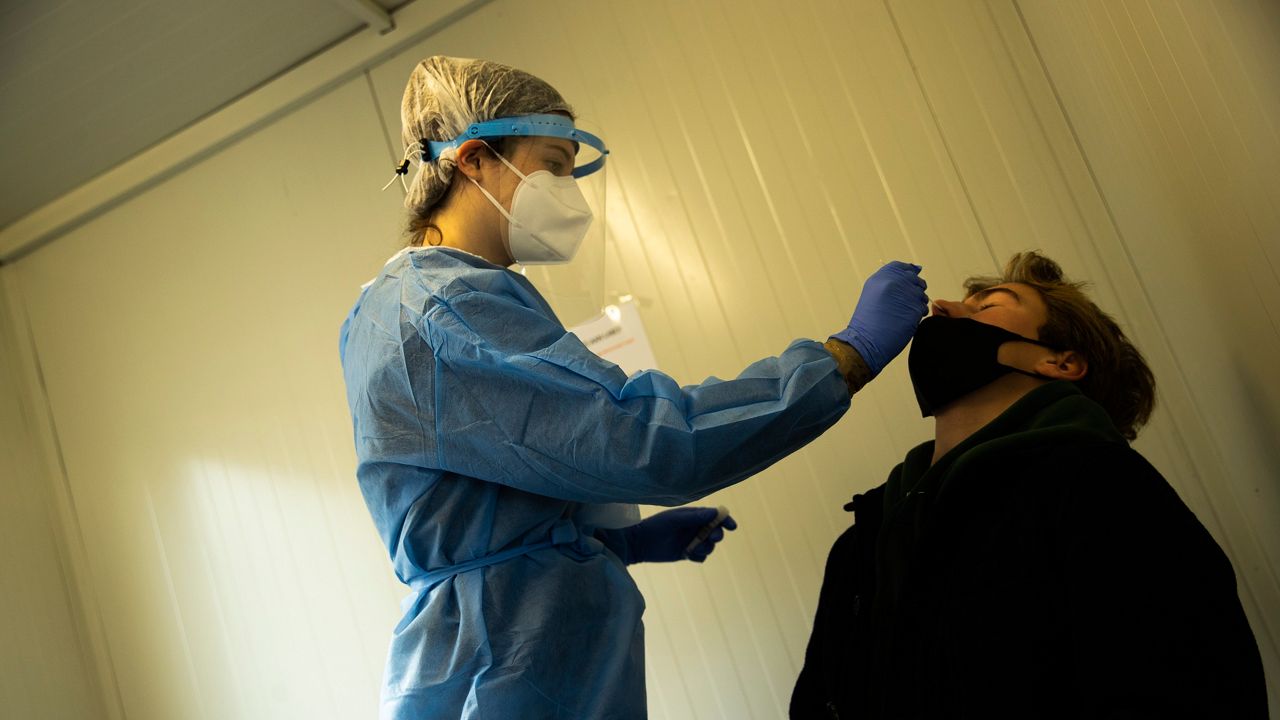MILWAUKEE — Over the course of the pandemic, tens of millions of people across the world have caught COVID-19 and recovered. But for this growing group of COVID-19 survivors, scientists still don’t have an exact answer for what immunity looks like.
Generally, the body is better at fighting off viruses and other invaders it has dealt with in the past. Parts of the immune system can remember what that invader looks like and rally the body’s defenses more quickly if it shows up again.
But the length of that memory can vary quite a bit, says Dr. Joyce Sanchez, an infectious disease specialist at the Medical College of Wisconsin.
“Our body’s immune responses to infections can wane over time, though they generally don’t disappear,” Sanchez explains in an email. “Some just wane faster than others.”
If someone recovers from measles, for example, they’re usually protected from reinfection for the rest of their life. But with other diseases, including many respiratory infections, immunity tends to fade more quickly.
Many researchers have tried to tackle the question of where post-COVID immunity falls on that spectrum.
One study, published in January in the journal Science, found that patients’ immune responses still looked strong eight months after infection. In samples from almost 200 previously infected people, the researchers saw that multiple pieces of the immune system — including antibodies, B-cells, and T-cells — appeared ready to fight off the coronavirus.
Sanchez points out that these lab-tested levels are really “surrogate markers” of immunity. They can give us a view into how the immune response is holding up, but “true immunity is ultimately determined by how often reinfection occurs in the real world,” she explains.
Another preprint study out of the U.K. last month tested just that, following almost 21,000 health care workers who were regularly tested for coronavirus over the course of five months. Those who had already recovered from COVID-19 were at much lower risk of catching the virus again, the researchers found, but the protection wasn’t perfect: The scientists detected 44 potential reinfections in the group.
Plus, the U.K. study also found that those with “natural immunity” may still be able to carry high levels of the virus in their noses and throats, raising the possibility they could infect others.
So what does all of this mean for those who have already had COVID-19?
Reports of reinfection within the first 90 days after infection are “extremely rare,” Sanchez says, so most people probably have some immunity within that time frame. But with what we know now, we can’t count on that immunity to be 100% protective, and it’s hard to give an exact estimate for how long the immune defense lasts —so keeping up precautions is still important.
As University of Pennsylvania Immunologist John Wherry tells Nature: “Reinfection is pretty unusual, so that’s good news. But you’re not free to run around without a mask.”
Getting clearer answers about post-COVID immunity is partly a matter of time. The first COVID-19 cases showed up a little over a year ago, and even though living through the past 13-months-and-change may have felt like forever, it’s still a pretty short period for understanding immunity.
Of course, the mutated virus variants emerging across the world may complicate things even more.
In Brazil and South Africa, studies have found a few cases of people who got sick with mutated variants after recovering from an earlier version of the virus. If your body has built up an immune response to an earlier infection, but then is faced with a mutated virus that looks a lot different, that immune response may be less effective, says UW-Madison Virologist Dave O’Connor.
“If these variants started becoming more common, we might see more reinfections,” O’Connor says. “And in turn, we’d need to update the public health guidance to say that just because you were infected within the last three months, doesn’t mean that you can’t get infected again.”
There are a couple of silver linings here. For one, immunity isn’t all-or-nothing, so having some immune response may be able to reduce severe symptoms even if it doesn’t stop an infection altogether.
Plus, the rollout of COVID-19 vaccines means we don’t have to rely on natural immunity anymore. Vaccines are a much more predictable — and much safer — path to immunity, as COVID-19 infections can lead to wildly different antibody levels (and, of course, carry the possibility of tragic outcomes).
That’s why, even if you’ve already had COVID-19, the Centers for Disease Control and Prevention guidance still says you should get the vaccine when you have the chance.
“We are unable to truly rely upon infection to guarantee strong, long-lasting immunity,” Sanchez explains. “While we don’t yet know just how long-lasting immunity with vaccines is, the medical community is very optimistic it will be more durable than natural infection.”



